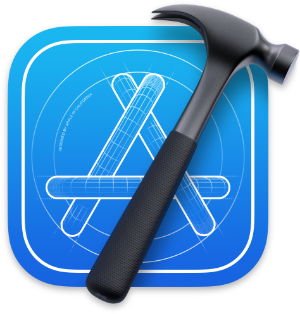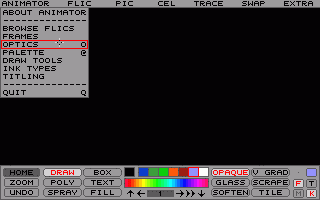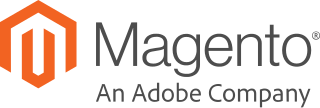
Xcode is Apple's integrated development environment (IDE) for macOS, used to develop software for macOS, iOS, iPadOS, watchOS, tvOS, and visionOS. It was initially released in late 2003; the latest stable release is version 14.3.1, released on June 1, 2023, and is available free of charge via the Mac App Store and the Apple Developer website. Registered developers can also download preview releases and prior versions of the suite through the Apple Developer website. Xcode includes command-line tools which enable UNIX-style development via the Terminal app in macOS. They can also be downloaded and installed without the GUI.

Simutrans is a cross-platform simulation game in which the player strives to run a successful transport system by constructing and managing transportation systems for passengers, mail and goods by land, air (airplanes) and water (ship) between places. Like OpenTTD, Simutrans is an open-source transportation game based on the Transport Tycoon idea.

Renegade is a freeware bulletin board system (BBS) written for IBM PC-compatible computers running MS-DOS that gained popularity among hobbyist BBSes in the early to mid 1990s. It was originally written by Cott Lang in Turbo Pascal, optimized with assembly language, based on the source code of Telegard, which was in turn based on the earlier WWIV.

Quicksilver is a utility app for macOS. Originally developed as proprietary freeware by Nicholas Jitkoff of Blacktree, Inc., it is now an open-source project hosted on GitHub.

Autodesk Animator is a 2D computer animation and painting program published in 1989 for MS-DOS. It was considered groundbreaking when initially released.

Git is a distributed version control system that tracks changes in any set of computer files, usually used for coordinating work among programmers collaboratively developing source code during software development. Its goals include speed, data integrity, and support for distributed, non-linear workflows.
QVCS is a family of version control system products historically published by Quma Software, Inc.
A source-code-hosting facility is a file archive and web hosting facility for source code of software, documentation, web pages, and other works, accessible either publicly or privately. They are often used by open-source software projects and other multi-developer projects to maintain revision and version history, or version control. Many repositories provide a bug tracking system, and offer release management, mailing lists, and wiki-based project documentation. Software authors generally retain their copyright when software is posted to a code hosting facilities.

Watcom C/C++ is an integrated development environment (IDE) product from Watcom International Corporation for the C, C++, and Fortran programming languages. Watcom C/C++ was a commercial product until it was discontinued, then released under the Sybase Open Watcom Public License as Open Watcom C/C++. It features tools for developing and debugging code for DOS, OS/2, and Windows, Linux operating systems, which are based upon x86, IA-32, x86-64 compatible processors.
Portable Batch System is the name of computer software that performs job scheduling. Its primary task is to allocate computational tasks, i.e., batch jobs, among the available computing resources. It is often used in conjunction with UNIX cluster environments.

Aptana, Inc. is a company that makes web application development tools for use with a variety of programming languages. Aptana's main products include Aptana Studio, Aptana Cloud and Aptana Jaxer.

Clonk is a single player and multiplayer video game series. The games feature a mix of the action, real-time strategy and platform game genres. Developed between 1994 and 2014 by RedWolf Design, the games of the series were originally released as shareware and became freeware and later open source software around 2008 and 2014. The game's community has since developed the series under the name OpenClonk. The series was compared and described as a mixture of Worms, The Settlers, Tetris, Lemmings and Minecraft. The game was noted for the easy game "extension" mechanic with an integrated editor and developer mode, which allows experienced players to create their own modifications directly into the game.
This is a comparison of notable free and open-source configuration management software, suitable for tasks like server configuration, orchestration and infrastructure as code typically performed by a system administrator.

Sandboxie is an open-source OS-level virtualization solution for Microsoft Windows. It is a sandboxing solution that creates an isolated operating environment in which applications can run without permanently modifying the local system. This virtual environment allows for controlled testing of untrusted programs and web surfing.

Magento is an open-source e-commerce platform written in PHP. It uses multiple other PHP frameworks such as Laminas and Symfony. Magento source code is distributed under Open Software License (OSL) v3.0. Magento was acquired by Adobe Inc in May 2018 for $1.68 billion.

GitHub, Inc. is a platform and cloud-based service for software development and version control using Git, allowing developers to store and manage their code. It provides the distributed version control of Git plus access control, bug tracking, software feature requests, task management, continuous integration, and wikis for every project. Headquartered in California, it has been a subsidiary of Microsoft since 2018.

ERPNext is a free and open-source integrated Enterprise Resource Planning (ERP) software developed by an Indian software company Frappe Technologies Pvt. Ltd. and is built on MariaDB database system using Frappe, a Python based server-side framework.

OpenZFS is an open-source implementation of the ZFS file system and volume manager initially developed by Sun Microsystems for the Solaris operating system and now maintained by the OpenZFS Project. It supports features like data compression, data deduplication, copy-on-write clones, snapshots, and RAID-Z. It also supports the creation of virtual devices, which allows for the creation of file systems that span multiple disks.

Visual Studio Code, also commonly referred to as VS Code, is a source-code editor made by Microsoft with the Electron Framework, for Windows, Linux and macOS. Features include support for debugging, syntax highlighting, intelligent code completion, snippets, code refactoring, and embedded Git. Users can change the theme, keyboard shortcuts, preferences, and install extensions that add functionality.
Microsoft, a technology company historically known for its opposition to the open source software paradigm, turned to embrace the approach in the 2010s. From the 1970s through 2000s under CEOs Bill Gates and Steve Ballmer, Microsoft viewed the community creation and sharing of communal code, later to be known as free and open source software, as a threat to its business, and both executives spoke negatively against it. In the 2010s, as the industry turned towards cloud, embedded, and mobile computing—technologies powered by open source advances—CEO Satya Nadella led Microsoft towards open source adoption although Microsoft's traditional Windows business continued to grow throughout this period generating revenues of 26.8 billion in the third quarter of 2018, while Microsoft's Azure cloud revenues nearly doubled.












